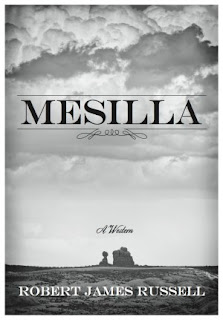Last year, I read seven books which were more than 700 pages long. I also read thirteen collections of short stories whose words were compressed hard as gems. In the foggy terrain between the huge door-stoppers and the fit-in-the-palm-of-your-hand stories, there was a healthy handful of novellas, those enjoyable works of fiction whose page lengths sprawl somewhere between the longer and shorter forms that the majority of readers are used to. Novellas are comfortable in their own skin and know exactly what they want to do in the time allotted to them. Though their popularity has been on the rise in recent years—thanks in part to publishers like Nouvella and Melville House—they remain some of our most under-read literature, just behind poetry in popularity (I have no statistics for this; it’s just my gut instinct talking). I weep for the readers who blithely ignore novellas.
Some of the very best fiction I encountered in all the thousands and thousands of pages I read in 2015 came from novellas. They took my imagination to new and exciting places in less time than it took me to read, say, City on Fire; and yet, they allowed me to spend more time with their characters than the quick dash-in-dash-out shorter fiction (which I also enjoyed in its own way). Here are the very best ones, my picks for the Best Novellas of 2015, in no particular order.
Mesilla
by Robert James Russell
Spare, unforgiving, relentless, beautiful. Those words describe three things: the New Mexico desert landscape in 1863, the plot of Mesilla, and Robert James Russell’s language which never seems to break a sweat on this novella’s pages. Mesilla is a welcome return to the western novels of Elmore Leonard, with a cinematic touch of Sergio Leone along the way, as a bullet-riddled man flees his former friend bent on exacting vengeance, no matter the cost. Laced with a neo-noir style, Mesilla is an old-fashioned western which crackles with the sharp ricochet of a bullet off a boulder. You may come for the exciting chase scenes, but you’ll stay for the thoughtful way Russell probes the human condition. There were some indelible images and scenes in these pages which have stayed with me to this day, five months after reading it. Mesilla is the perfect blend of artful storytelling and cinematic action.
On the Island at the Center of the Center of the World
by Elizabeth Kadetsky
Faintly echoing the title of William Gass’ In the Heart of the Heart of the Country, Elizabeth Kadetsky’s novella from Nouvella, set on the Mediterranean island of Malta, reminded me of another great mid-20th century writer, Paul Bowles. On the Island at the Center of the Center of the World is about disorientation in a foreign land and how we survive when we’re set adrift from the familiar and routine. Netti and her precocious eleven-year-old son Ian have come to the island from America, hoping to find a new beginning: “Malta seemed a place to start over. Clean up. Dry out. Drink less.” When, in the opening pages, she witnesses a hit-and-run on the street outside their apartment, Netti will find the Mediterranean has a dark underbelly behind the veneer of sapphire-blue seas and sparkling fireworks at night. Kadesty held me tight against the page as I followed Netti on her dangerous quest for the truth.
Camp Olvido
by Lawrence Coates
Like the other two novellas I’ve mentioned, Lawrence Coates’ Camp Olvido builds an entire universe on the head of a pin. I’m blown away by how all three of these writers sent me to vivid, fully-realized landscapes of the imagination in such a short space. Here, in Camp Olvido, Coates took me to a migrant labor camp in California during the Great Depression. This is John Steinbeck territory and, frankly, Coates out-Steinbecks Steinbeck himself. I was completely taken in by the simple, yet wholly entrancing, prose in these pages as Esteban, a bootlegger and traveling salesman, gets caught up in a conflict between migrant workers and the landowners. There are so many memorable passages in Camp Olvido that it would be impossible for me to list them all; but let me leave you with this one where Coates manages to find beauty even in the most violent of scenes:
The vendor dropped the knife and put both hands to his throat, trying to gather up his lost blood and bind up the rent flesh, trying to find a way to keep breathing the earth’s sweet air.There are some books when, after you finish them, leave you breathless, quiet, and thoughtful. Camp Olvido stunned me into silence. I sat there with this universe in my hand for the longest time.
He fell to his knees, then his muscles sagged and he toppled over, and the great bag of skin that had contained him slackened and emptied.
Related posts:
A Year of Reading: Best Books From Other Years
A Year of Reading: Best Poetry of 2015
A Year of Reading: Best Gift Book of 2015 for Bookworms
A Year of Reading: Best Short Stories of 2015
A Year of Reading: Best Book Cover Designs of 2015
A Year of Reading: Best First Lines of 2015
















No comments:
Post a Comment
Note: Only a member of this blog may post a comment.